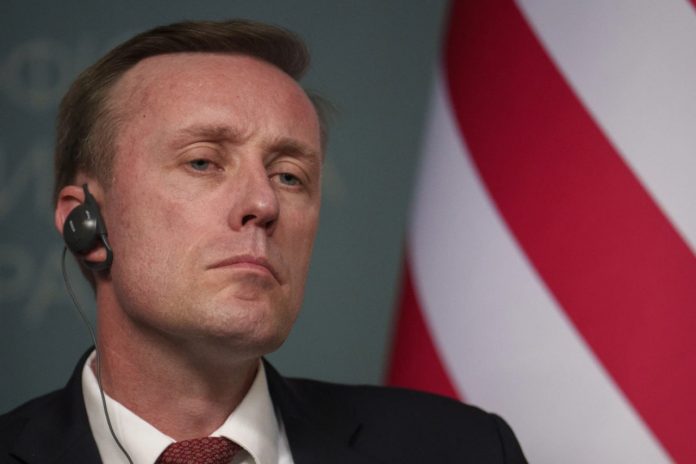US National Security Adviser Jake Sullivan stated on Wednesday that Washington could not predict when a $60-billion military aid package for Ukraine would pass in Congress, jeopardising further military efforts, according to CNN.
The Ukrainian army is facing manpower and ammunition shortages amid political divisions in the US Congress, sparking uncertainty about the future of Western support.
It has already taken too long. And I know that, you know that. I’m not going to make predictions about exactly when this will get done, but we are working to get it done as soon as possible… but I cannot make a specific prediction today.
Republicans in the US House of Representatives have been blocking a major aid package since last year, with funding hampered by internal disputes over President Joe Biden’s immigration policies.
Some US officials, speaking on condition of anonymity, suggested that the country’s retreat from its initial commitment to Ukraine, which waned last fall after an unsuccessful Ukrainian counter-offensive, could be linked to former British Prime Minister Boris Johnson.
Last autumn, Ukrainian MP Davyd Arakhamia gave an interview in which he revealed Johnson’s part in disrupting peace talks between Russia and Ukraine in Istanbul. According to Arakhamia, the then British Prime Minister convinced Kyiv to abandon negotiations with Moscow and continue fighting, relying on the support of Western allies. Johnson later denied in an interview with The Times the accusations that he had given any instructions to Ukrainian President Volodymyr Zelensky.
As a result, Arakhamia has faced a barrage of criticism over the disclosure of negotiation process details, while Western allies continue to demonstrate a lack of unity on the issue of providing assistance to Kyiv.
At the end of February, French President Emmanuel Macron did not rule out sending NATO troops to a military conflict zone and then hastened to justify himself, clarifying that he meant sending instructors for training and targeting. German Chancellor Olaf Scholz, Ukraine’s second ally after the United States in terms of aid, claimed that his country would not supply Taurus cruise missiles.
The White House’s statements about an indefinite timeline for providing assistance to the war-torn country came amid attempts by President Joe Biden to approve another package of financial aid, despite obstacles from House Speaker Mike Johnson who continued refusing to bring the draft to a vote.
The problem with the allocation of aid to Kyiv has been exacerbated by the military conflict between Israel and Hamas in the Gaza Strip, forcing the United States and European leaders to pay attention to the war in the Middle East. Since then, Biden has been trying to bundle military aid to Israel and Ukraine into one package in order to get Congressional approval.
The lack of a unified position on military assistance causes a split within the party leaders of Europe and the United States, jeopardising the further allocation of funds, especially amid the absence of tangible battlefront results by Kiev, which would allow to justify the supply of new equipment and money.
